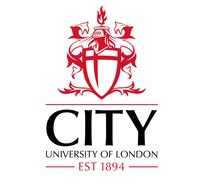
Analyse CFD des effets de la géométrie de l’orifice de refoulement des pompes à vide à griffes et à becs.
CFD analysis on the effect of discharge port geometry of the hook and claw vacuum pumps.
Numéro : 178
Auteurs : THEOFANIDIS K., LU Y., KOVACEVIC A.
Résumé
Due to the sharp discontinuities in the profile of hook and claw pumps which make it difficult to produce a good quality body fitted mesh, their CFD simulations are challenging. However, the cut-cell Cartesian meshing method is capable to handle the very complex moving geometries and is easy to setup. However it may lead to conservativeness issues. The aim of this paper is to investigate the influence of discharge port geometry of the hook and claw pump on its performance by using commercial software ANSYS Forte, which utilizes automatic mesh generation using the cut-cell Cartesian method. Firstly, five discharge ports with different geometries were designed. Secondly, the pumps with these different port configurations were set up and ran in the ANSYS Forte. Finally, the power and volume flow rate were compared. It was noticed that the geometry with the extended discharge port tip and the preliminary discharge port opening result in performance and reliability improvements. The simulation results can be used to further optimize the discharge port during the design of these machines.
Documents disponibles
Format PDF
Pages : 10
Disponible
Prix public
20 €
Prix membre*
15 €
* meilleur tarif applicable selon le type d'adhésion (voir le détail des avantages des adhésions individuelles et collectives)
Détails
- Titre original : CFD analysis on the effect of discharge port geometry of the hook and claw vacuum pumps.
- Identifiant de la fiche : 30028996
- Langues : Anglais
- Sujet : Technologie
- Source : 12th International Conference on Compressors and their Systems
- Date d'édition : 09/2021
- Document disponible en consultation à la bibliothèque du siège de l'IIF uniquement.
Liens
Voir d'autres communications du même compte rendu (63)
Voir le compte rendu de la conférence
Indexation
- Thèmes : Circulation du fluide : tuyauterie, régulation, automatisme, sécurité
- Mots-clés : Pompe à vide; Géometrie; CFD; Simulation; Refoulement; Rotor; Conception; Débit; Masse
-
Maxwell velocity slip and Smoluchowski temperat...
- Auteurs : JUNEMANN T., PLESKUN P., BRÜMMER A.
- Date : 09/2021
- Langues : Anglais
- Source : 12th International Conference on Compressors and their Systems
- Formats : PDF
Voir la fiche
-
Modelling of inhomogeneous chamber states in ro...
- Auteurs : PLESKUN H., JUNEMANN T., BODE T., BRÜMMER A.
- Date : 09/2021
- Langues : Anglais
- Source : 12th International Conference on Compressors and their Systems
- Formats : PDF
Voir la fiche
-
Stick-slip squeal in a dry scroll vacuum pump.
- Auteurs : CALHOUN J., MOORE J., FORNI R.
- Date : 11/07/2016
- Langues : Anglais
- Source : 2016 Purdue Conferences. 23rd International Compressor Engineering Conference at Purdue.
- Formats : PDF
Voir la fiche
-
CFD simulation and experimental studying of a d...
- Auteurs : MA K., GUO B., ZHOU Y. H., WANG Y. B.
- Date : 09/2021
- Langues : Anglais
- Source : 12th International Conference on Compressors and their Systems
- Formats : PDF
Voir la fiche
-
An application of co-rotating scroll compressor...
- Auteurs : MORISHITA E., KITORA Y., TOKUMITSU K., NISHIDA M., SASAKI K.
- Date : 16/08/1993
- Langues : Anglais
- Source : Heat pumps in cold climates. Proceedings of the second international technical conference.
Voir la fiche
